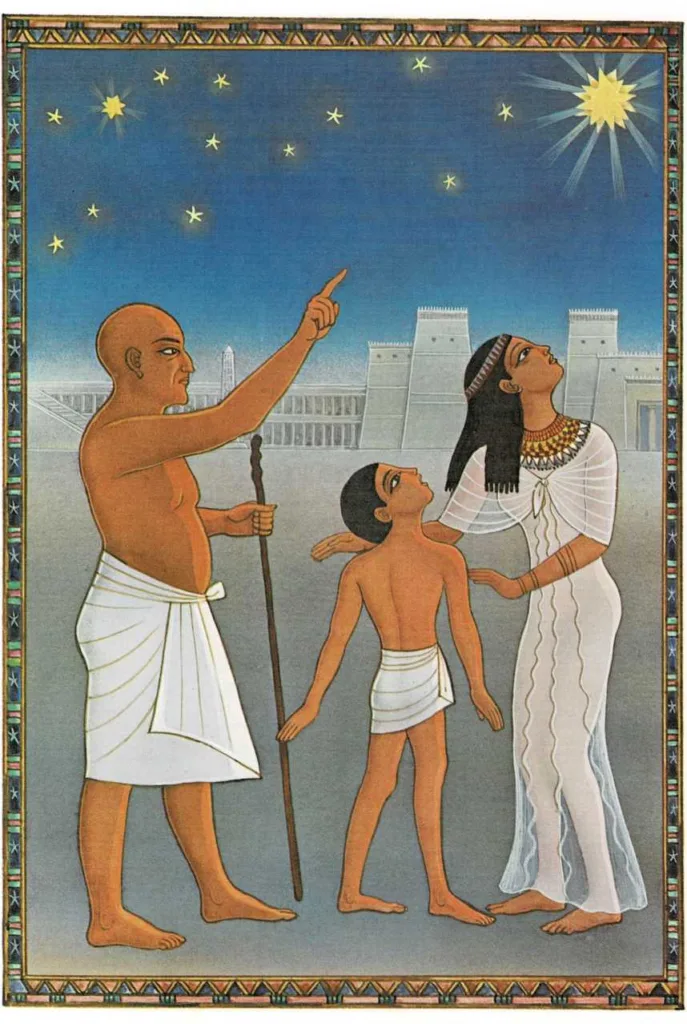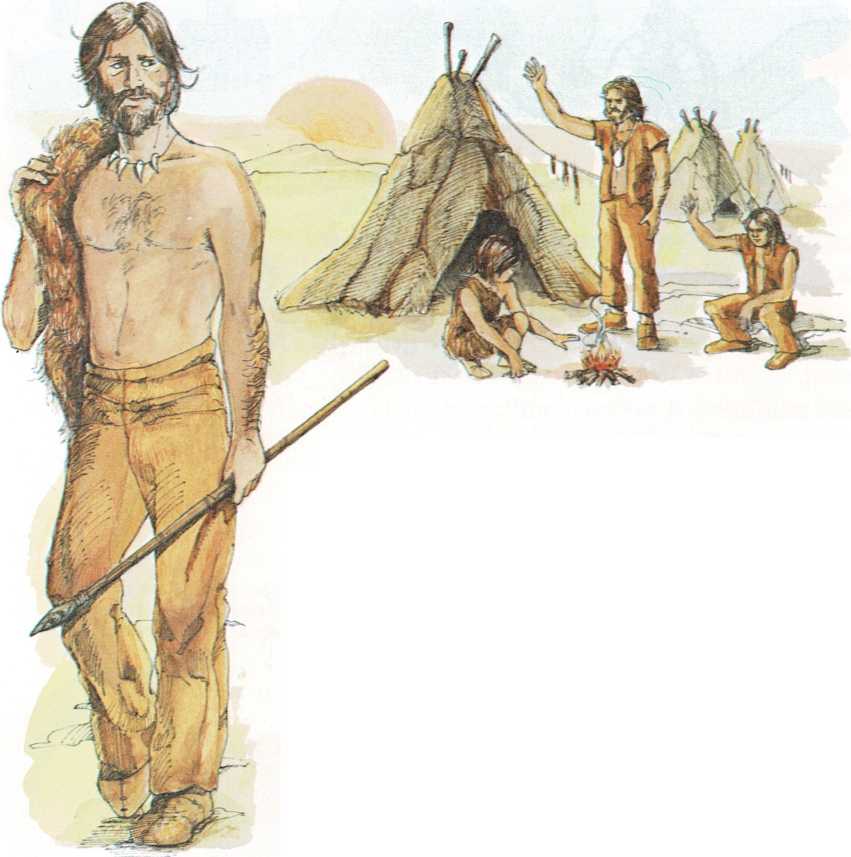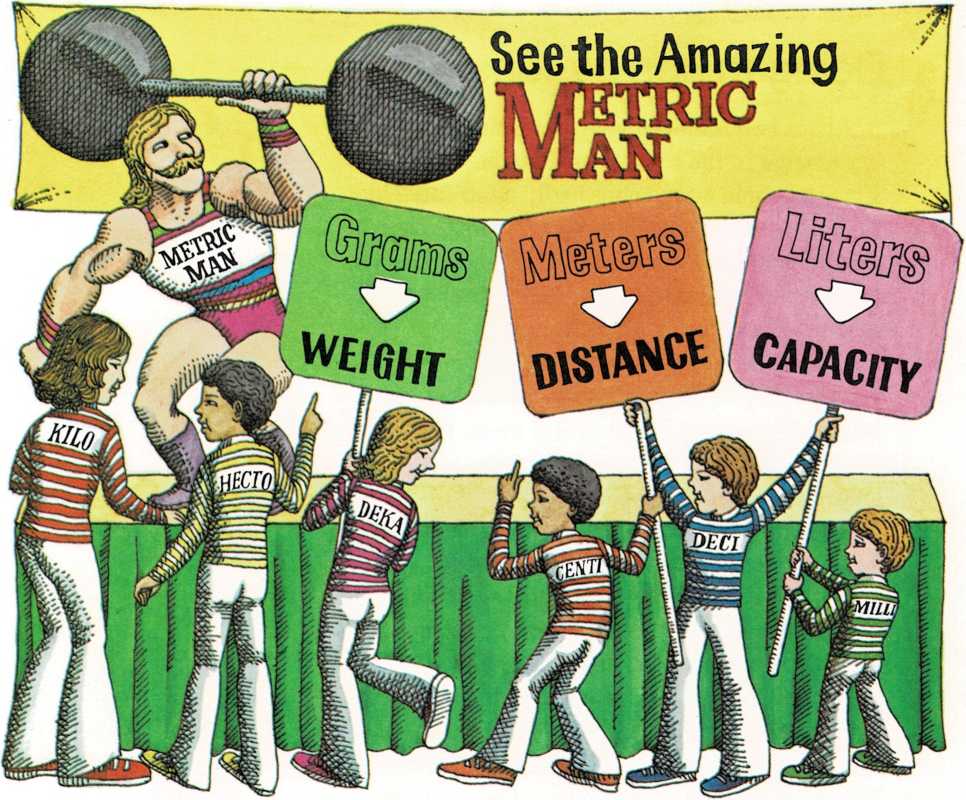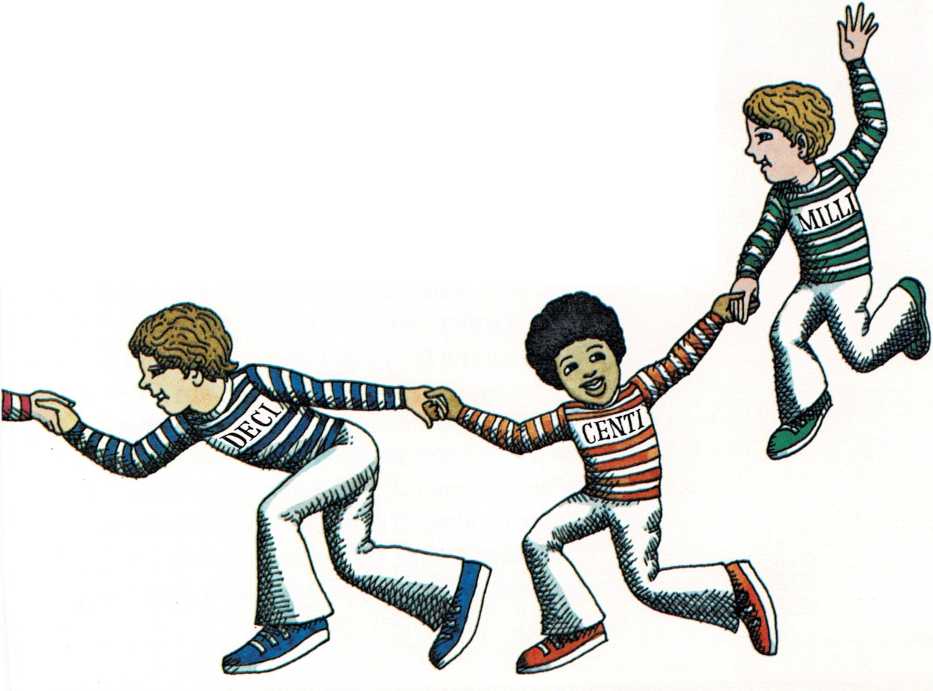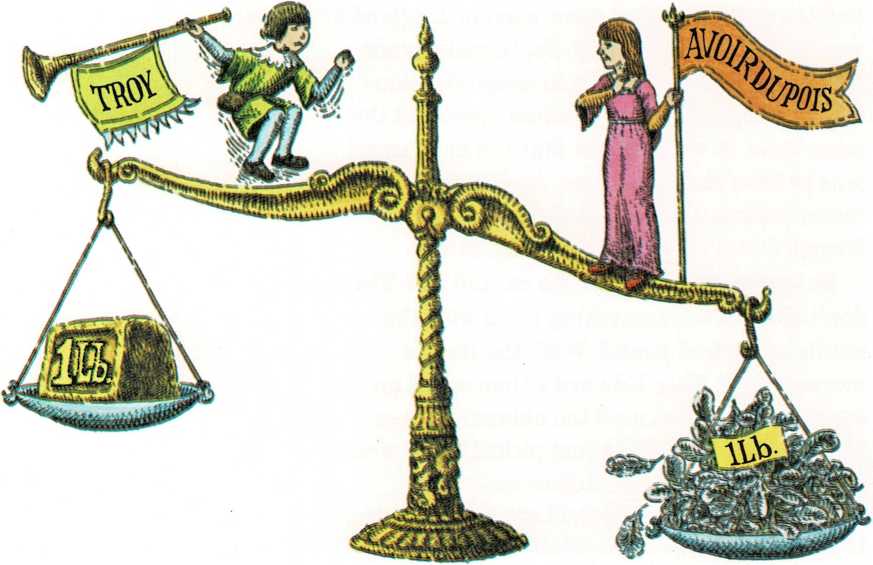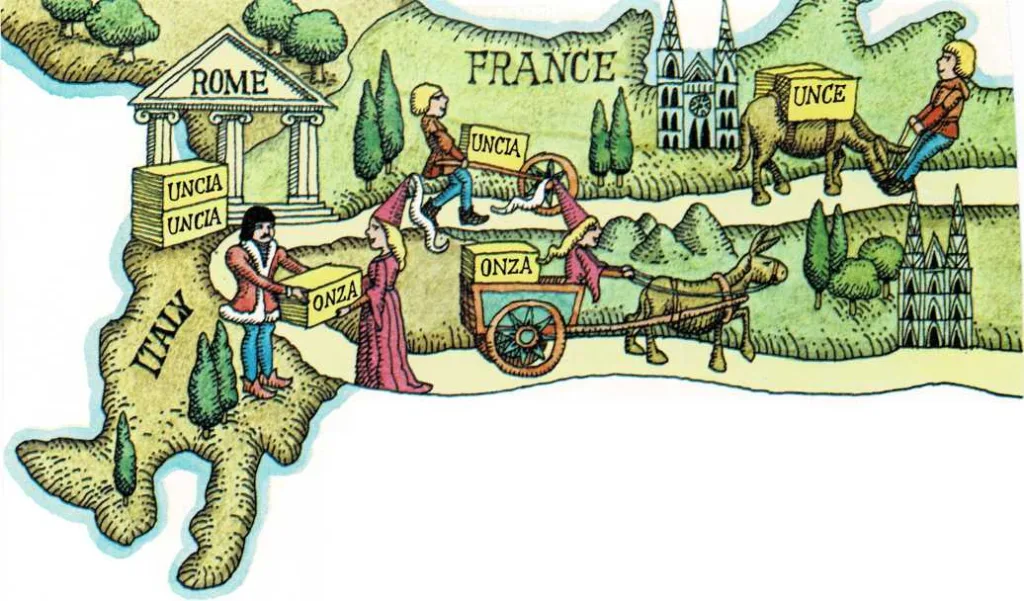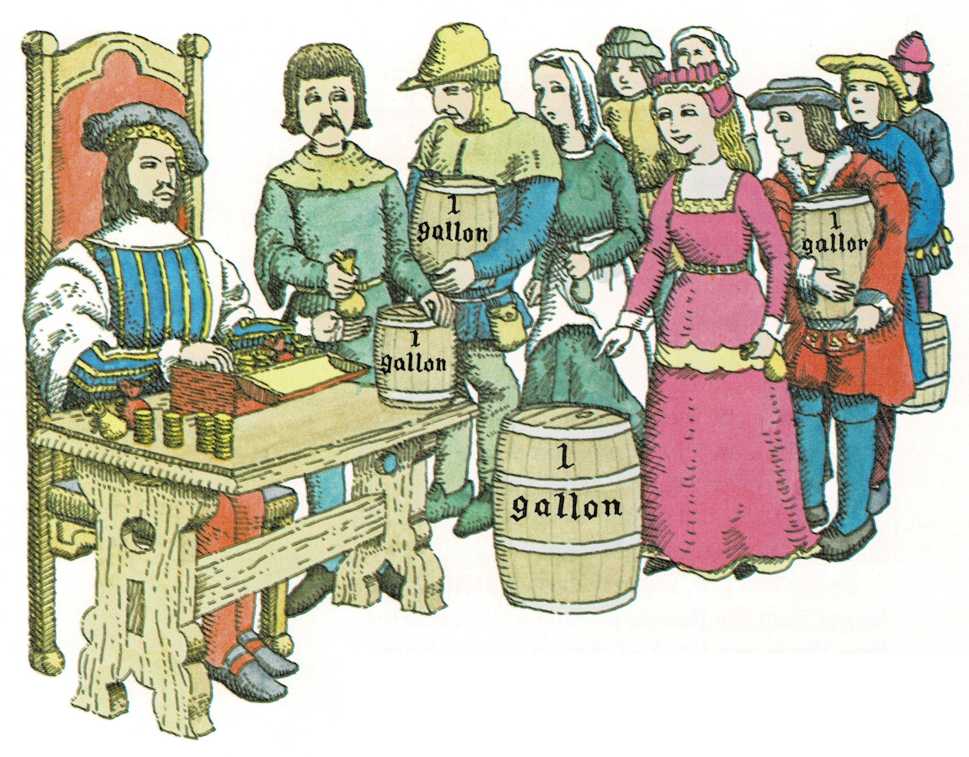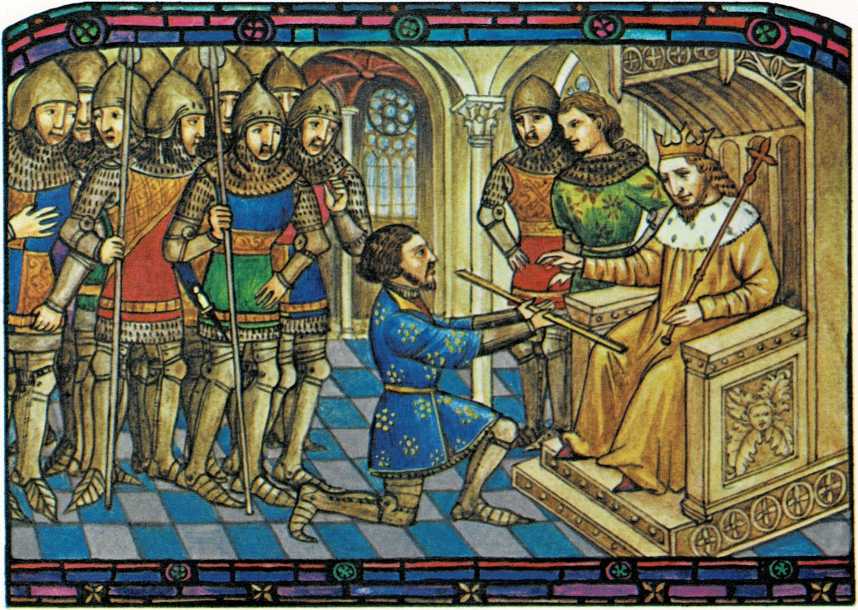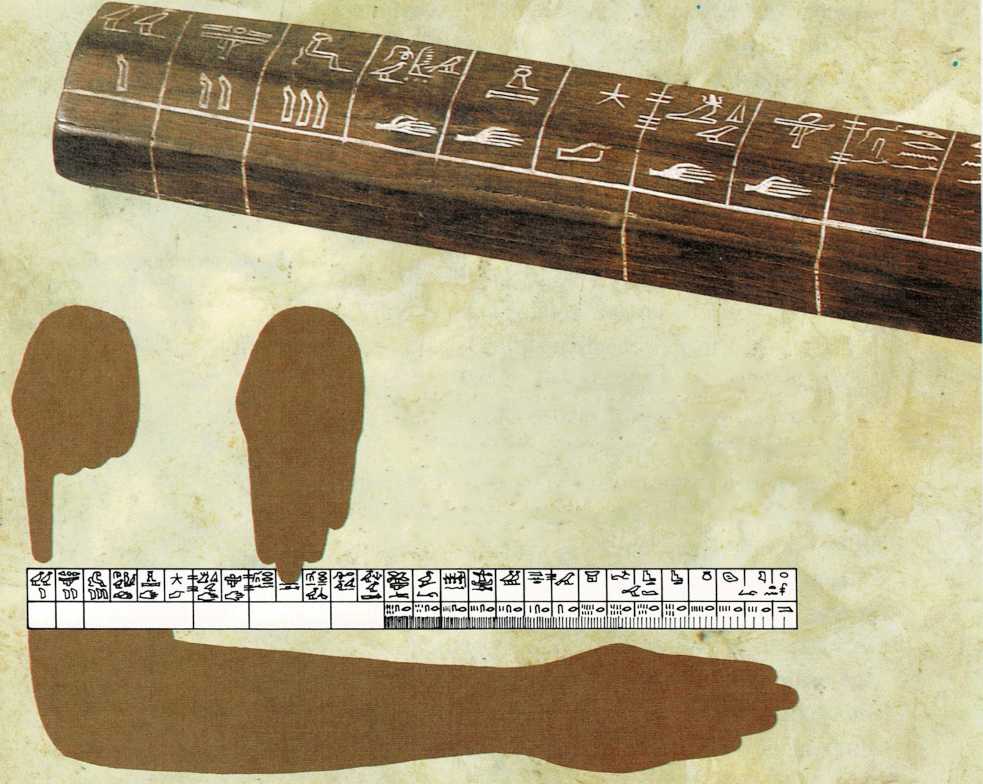People of long ago lived out of doors most of the time, so they were used to seeing the stars at night. And they knew that the stars moved across the sky during the year. Because the stars always...
Suns and moons, winters and summers
If you want to know what time it is, you look at a watch or a clock. If you want to know the date, you look at a calendar. A clock measures time during a day. It lets you know when to turn on a...
No Title Found
A meter is slightly longer than a yard, or just a little longer than five Childcraft books placed flat, side by side. The word meter comes from a Greek word that means "measure." And it is from the...
Doing things by tens
About two hundred years ago, there was a big change in the country of France. The French people were being badly mistreated by their king and the nobles. So, the people rose up and got rid of them...
So many measures!
Which weighs more, a pound of feathers or a pound of gold? You probably said, "Ha, you can't fool me! A pound is a pound. They both weigh the same!" Sorry, you're wrong. A pound of feathers weighs...
Ounces and pounds
In the English, or customary, system of measurement, bread, butter, people, and many other things are weighed in ounces and pounds. But why are there sixteen ounces in a pound? And why do ounce and...
Pints, quarts, and gallons
People who use the English, or customary, system of measurement buy milk and other liquids in pints (pynts), quarts (kwawrts), and gallons uhns)---and they have a terrible time remembering that...
Inches, feet, yards, miles
In what is called the English, or customary, system of measurement, there are 12 inches in a foot, 3 feet in a yard, 16£ feet in a rod, and 5,280 feet in a mile. Why such odd numbers? Well, it's...
Making things even
There was one trouble with the way people first measured things with their arms, hands, and feet. Some people have longer arms, bigger feet, and wider hands than others. If you and your father each...
Balances and coins
When people first began to raise crops, they had to carry the grain from the field to a storage place. They soon learned that they could carry two loads easily by hanging one load at each end of a...

